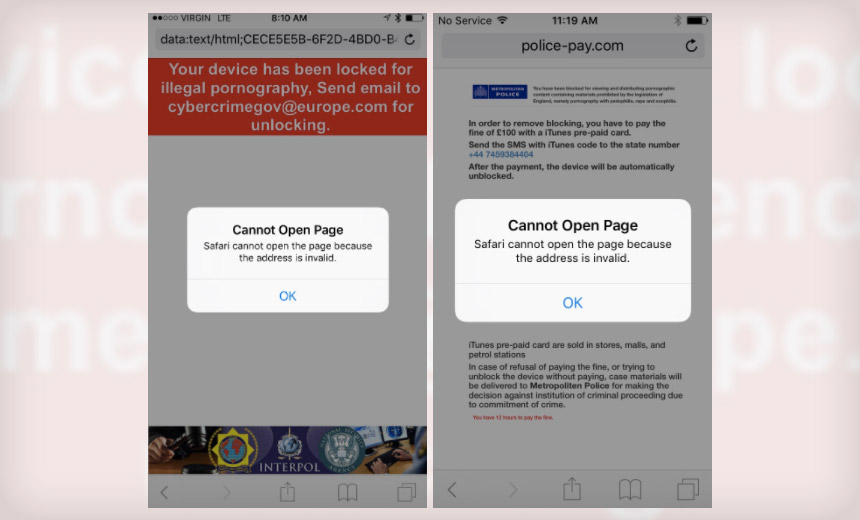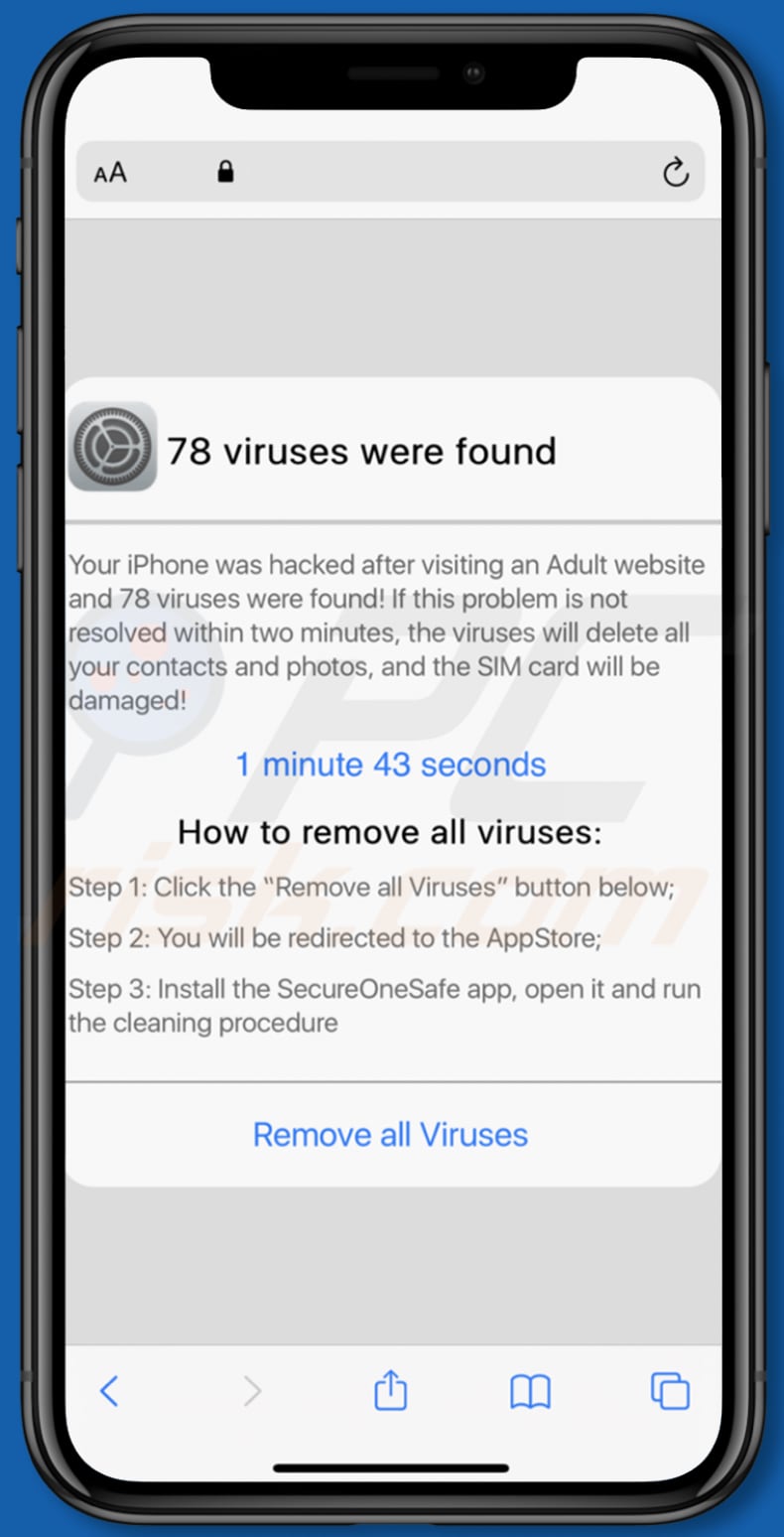

You can always go into settings for Safari or Chrome and disable website popups - this is perhaps the only way to deal with these scams in advance although legitimate and useful pop-ups will also be blocked. In some cases, you might have to hit “OK” and quick exit out of the affected tab. The best way to deal with these types of scams is to close your web browser. As always, exercise caution when someone’s asking for your sensitive data.

Other times, they’ll redirect your web browser to a scam website that’ll attempt to solicit your personal information or login details. Sometimes, they’ll tell you to contact “tech support” and will provide a fake phone number. Annoyingly, it’s not always easy to close out of them - in some cases, they’ll even reappear if you exit out of and re-open your browser. These scams will claim that your iPhone has a virus (not likely), is in the process of crashing (a pop-up won’t appear for a crash), or that there’s another assorted problem with your iPhone. You’ve probably seen a random pop-up when browsing various sites on your iPhone or iPad, and they’ll share the same sense of urgency as previous scams. If you’re an iOS user, this might very well the scam that you are most familiar with. Doing so will tip the scammers off that they have an active, real phone number to harass in the future. If they mention texting them back to stop further texts, don’t. Some scams even incorporate other random text messages in a foreign language to give their claims of a “breached account” extra credibility.Īs with other scams on this list, your best bet to deal with unsolicited contact is simply to delete the message. Most scam text messages will promise dangerous consequences if you don’t comply (though, of course, the exact opposite is true), and will include a link to a fraudulent site where you’ll input information. They can also claim that your Apple ID will soon be terminated, or that your iCloud account has been closed for some reason (which, at times, isn’t given). They’ll say that your Apple ID has been locked due to a recent string of attempted logins, or something similar. In our digital era, you’re just as likely to receive a scam through text as you are through an email.Īs with previous scams on the list, text scams can vary in form. With the rise of the smartphone, scams delivered via iMessage or SMS text are becoming increasingly common. When in doubt, delete the email and contact Apple directly. Similarly, be aware if any email is asking you to input your personal information - the majority of legitimate emails won’t. In most cases, they’ll take you to a page that also appears to be legitimate, where they hope you’ll enter your sensitive data.Īs always, check the email’s sender and the body text of the message. As with the invoice or receipt scam mentioned earlier, these can be a near carbon copy of an email you might actually receive from Apple or another tech company.Īll of these scams will present a problem, such as your Apple ID being “locked” or a change in Apple’s “security policies.” As with basically every other tech scam, the malicious email will claim that your personal information is needed to fix the issue. Worryingly, many email-based scams are also frighteningly realistic. You can get a variety of emails from the Cupertino tech giant for various actions. In fact, it’s usually a common occurrence. If there’s even a trace of doubt in your mind, delete the email and contact Apple.įor most Apple users, an email from Apple isn’t a cause for concern. It’s also smart to keep an eye on the sender’s email, as well as the link (you can hover over the “cancel purchase” link to see its true destination). When clicked, it’ll bring users to a page asking for their name, Apple ID and password, address, birthdate, social security number, and financial information.Īpple users should be aware that the company will never ask for your sensitive information when canceling a purchase. The fake receipt will have a link to cancel if the purchase if it was unauthorized (which, of course, it was). Of course, since the victim hasn’t bought whatever is on the recipient, they’ll quickly look to cancel or report the fake purchase. More often than not, they’ll simply claim that the recipient has made a recent purchase (typically a large one). These scams appear to be official Apple receipts or invoices, and they can be extremely convincing. Rather than asking a user for information or to make a purchase, these scams claim that a user - or a malicious third-party - has already made a purchase. Some recent Apple scams take an evil but clever twist.


 0 kommentar(er)
0 kommentar(er)
